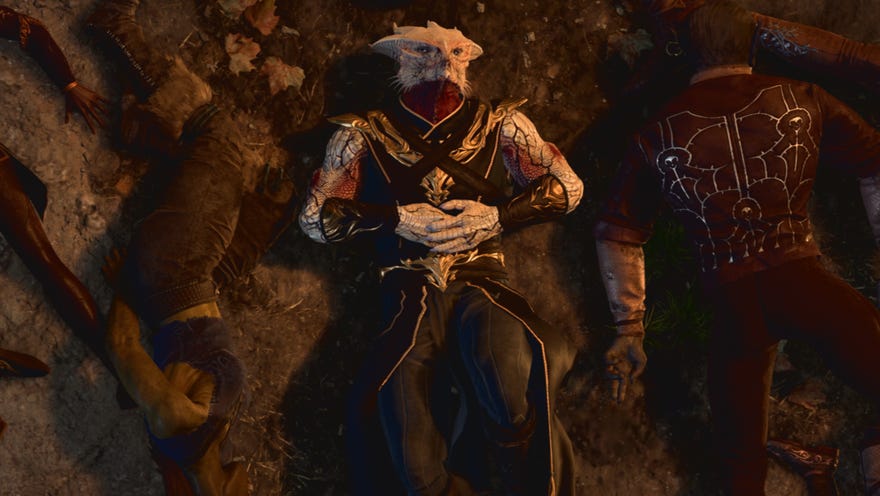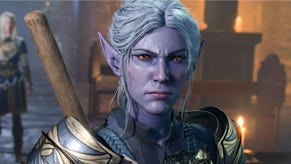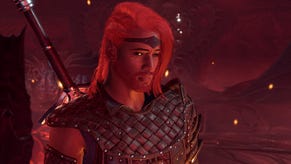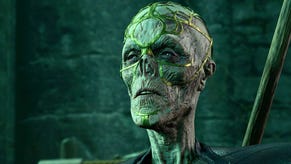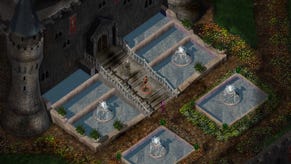Baldur's Gate 3 publishing director says "almost all games should cost more at a base level" because they cost so much to make
"Everyone's just waiting for GTA6 to do it lol."
Baldur's Gate 3 publishing director Michael Douse has reopened the topic of video game prices being very modest for what those games offer, commenting that the pricing of blockbusters like the recent Star Wars Outlaws has not kept pace with rising development costs and general economic inflation.
I mention Outlaws because it's this game that has sparked Douse's thoughts. Writing on the artist formerly known as Twitter, he shared an image of the new Ubisoft game's Ultimate Edition, which encompasses the "base" offering and a sack of season pass content and collector's goodies such as a digital artbook, together with the nowadays-routine promise of pre-release access. Douse suggests that special editions such as these are a way of "artificially" hiking prices without, strictly speaking, saying that you're doing so.
"I don't love the artificiality of pricing structures post retail," Douse wrote. "Use the inflated base price to upsell a subscription, and use vague content promises to inflate ultimate editions to make the base price look better. It all seems a bit dangerous & disconnected from the community."
Douse added that "I think a game should be priced accordingly with its quality, breadth & depth", and that publishers should be more upfront and honest about wanting to charge more for games, rather than putting out special editions that muddy the picture. "Almost all games should cost more at a base level because the cost of making them (inflation, for one) is outpacing pricing trends," he wrote. "But I don't think we'll get there with DLC promises so much as quality & communication. Everyone's just waiting for GTA6 to do it lol."
It seems important to remember here that Larian's own Baldur's Gate 3 also had more expensive special editions encompassing a mix of digital and physical bonuses. Presumably, Douse regards those editions as above-board - I'll let you be the judge. That aside, he's far from the only senior industry figure to argue that the cost of making games like Outlaws is out of whack with pricing.
The mention of GTA 6, out in 2025, reminds me of Take-Two Interactive CEO Strauss Zelnick's comments from an earnings call last year that industry prices are "very, very low" versus the number of hours of playtime games offer and player perception of their value.
Zelnick added, however, that this conviction of giving you a lot for a little "doesn't necessarily mean that the industry has pricing power or wants to have pricing power". In other words, Take-Two and other publishers aren't about to impose a broad price jump on their audience, though I imagine GTA 6 could get away with it.
Capcom's president Harushiro Tsujimoto has gone further than Zelnick, noting via Kotaku that development budgets have shot up "100 times" since the heyday of the Famicom in the 90s. Speaking at last year's Tokyo Game Show with regard to the Japanese games industry in particular, Tsujimoto argued that "considering the fact that wages are rising in the industry as a whole, I think raising unit prices is a healthy option for business."
Here's a piece about the pricing/budget question from the Financial Times, published in January this year, which includes a JPMorgan analysis of pricing trends in the USA specifically. "The cost of developing an AAA game has risen approximately tenfold over 15 years, and the customer has probably not noticed much," it reads. "Poor pricing power means the standard storefront price has risen only 17 per cent since 2007, from $60 to $70."
I do not want to pay more for games like Outlaws, and am mistrustful of pronouncements from people higher up the ladder about what their flagship games should cost. Amongst other things, it seems unlikely that the actual developers of those games would automatically benefit from any rise in revenues - if the past few years have taught us anything, it's that rank-and-file devs are considered disposable where leadership are not.
It's also worth reiterating that there's a difference between a video game making its money back, and a video game making enough money for its investors. As one developer told me during an interview about Embracer's gutting of Chorus devs Fishlabs, "we make a shitload of money, but it doesn't go back into the games".
I do agree that the cost/price ratio for blockbuster games such as Star Wars Outlaws looks very unhealthy on paper. Attempts to fill that gap have led, amongst other things, to the present glut of live service seasonal content games, which basically rely on players devoting time and money to them at the expense of trying anything else. The cost/price discrepancy has also contributed to the current heavy promotion of generative AI technologies, which publishers often tout as a way of magically shrinking budgets while talking around the implications for their workforces.
But I think there are larger, trickier questions at stake involving the culture and perception of "AAA" games as, basically, exercises in being deliberately unsustainable. Sometimes, I think games such as Outlaws are sold and bought purely on the strength of the idea that they represent an unholy expenditure of resources - capitalism at its most decadent, doomed and spectacular, where you can all but feel the game burning a hole in the universe while you play.
I wrote a piece for Edge before joining RPS which traced the "AAA" concept to its apparent origins in the 90s, based on interviews with various industry executives. The nearest that piece came to a working original definition was that "AAA" games are games with budgets so huge they cannot possibly fail, which is not a formulation that has aged well.
While the biggest of the big-leaguers toy with the prospect of price increases, some publishers continue to experiment with various incarnations of "mid-tier" blockbuster, which offer the impression of "triple-A" largesse on a saner budget. Here's Techland, for example, on why shorter expandalones like the recently announced Dying Light: The Beast are "the future of games".
